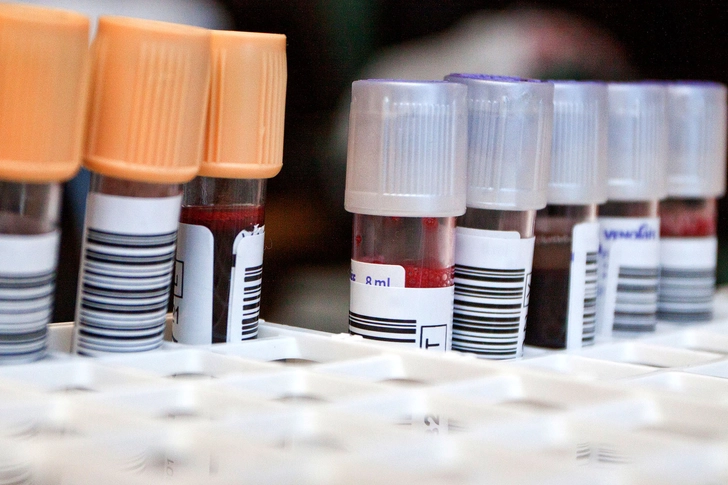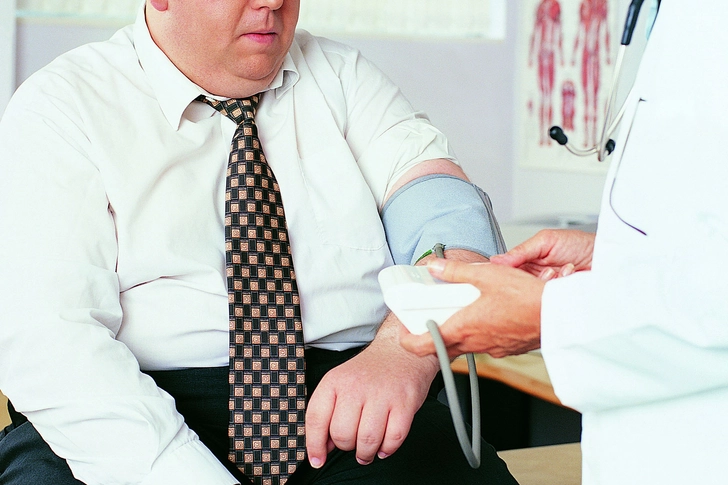- Overview
- MASLD and MASH
- Tests & Diagnosis
- Treatment and Prevention
- Complications
- Appointment Prep
- View Full Guide
Just Diagnosed With MASH? Here is Your Step-by-Step Action Plan for What to Do Next


Understand the Diagnosis
If you have MASH (metabolic-dysfunction associated steatohepatitis), talk to your doctor about your diagnosis. MASH is a serious disease that happens when a buildup of fat in the liver causes inflammation, which can keep the liver from working as it should. If left untreated, it can cause liver tissue to become damaged and scarred. This is called fibrosis. Ask about any fibrosis in your liver, which shapes your treatment plan. While there's no one cure for MASH, you can reverse the disease or keep it from getting worse.

Unpack Your Emotions
Everyone deals with a MASH diagnosis differently. You may feel shocked, sad, overwhelmed, scared, and anxious. It's also normal to feel ashamed or guilty for having the disease, even though no one's to blame. Give yourself some time to process these emotions. Share how you're feeling with people you trust, such as friends and family members. Your health care provider can also talk through your concerns and refer you to a mental health professional.

Changes You Can Make Right Away
Your everyday habits affect your metabolic health, which goes hand-in-hand with MASH. Extra body weight, high cholesterol, and high blood pressure can contribute to the fat buildup. To protect your liver and heart, eat a diet high in vegetables, fruits, whole grains, lean protein, and healthy fats. Getting regular exercise and a good night's sleep are also important. These moves can help lower inflammation and help you reach or maintain a healthy weight.

Things You Can Stop Doing Now
First, consider giving up alcohol. Even moderate drinking (two or fewer drinks a day for men and one or fewer for women) can trigger inflammation in the liver. This can lead to widespread scarring that doesn't heal, called cirrhosis. Smoking also worsens inflammation, so stamp out that habit. You should also scale back on foods with high-fructose corn syrup, such as soda and candy. The liver processes fructose, and too much of it adds to the fat buildup.

Things You Can Start Doing Now
You don't need to overhaul your routine. A few simple changes can have a big impact on your liver. When making meals, choose whole foods instead of highly processed ones. They're lower in the ingredients that worsen inflammation, such as added sugar. Try filling half of your plate with vegetables. To add exercise into your day, get moving for 10 minutes, three times a day. You can walk, stretch, or lift weights.

Build Your Care Team
It takes a team to properly manage MASH. Your primary care doctor looks after your overall health and coordinates between doctors. You'll also see a gastroenterologist, who treats digestive diseases, or a hepatologist, who specializes in liver conditions. An endocrinologist helps manage metabolic issues, such as diabetes. You may also consult a registered dietitian for an eating plan that supports the liver, a personal trainer for fitness advice, and a pharmacist to manage any medications.

Find Diet Changes You Can Stick With
The best diet changes are those that last. Making smaller, manageable changes is better than a drastic diet that you give up after a few months. Try adding more vegetables and fruits to your meal. Also replace saturated fats – such as butter – with healthier unsaturated ones – such as olive oil and avocado. A smart eating plan to follow is the Mediterranean diet, which improves liver health in people with MASH. A dietitian can give you personalized advice.

Build a Long-Term Exercise Routine
Exercising can remove some of the fat buildup in the liver and improve your MASH outlook. The key is finding activities that you enjoy, because you're more likely to keep with it. Consider trying a variety of workouts, such as walking, dancing, biking, swimming, yoga, and strength training. Aim to get 150 to 300 minutes of moderate exercise each week, but you don't need to do it all at once. You can do 10 minutes, three times a day.

Focus on Weight Management
Maintaining a healthy weight is one of the most effective treatments for MASH. Losing 5% or more of your body weight can reduce excess liver fat, and shedding 10% or more may even reverse the disease. To lose weight in a healthy way, aim to drop 1 to 2 pounds a week through a healthy diet and exercise. Some people may benefit from weight loss medication or bariatric surgery.

Medical Follow-Ups
You'll need to see your health care provider for regular checkups. They'll want to check on your weight loss progress and monitor any other conditions, such as diabetes, high blood pressure, or high cholesterol. You'll most likely get blood tests to measure your liver function and other metabolic health markers. Once in a while, you may get imaging tests to find out if the scar tissue in your liver, or fibrosis, has gotten worse.

Screen for Other Issues
Most people with MASH also have another metabolic condition. About two in three people with the disease also have high cholesterol or high blood pressure. Other conditions include type 2 diabetes, obesity, high triglycerides, and insulin resistance. Your health care provider will want to test for these conditions. They also raise your risk of heart disease, so it's important that you get them under control.

Explore New Treatment Options
Whether your disease has gotten worse or remained the same, it's a good idea to ask your doctor about new treatment options for MASH. Over the past few years, new medications have become available. Resmetirom (Rezdiffra) can reverse some of the scarring in people with MASH. The FDA also approved semaglutide (Wegovy) for MASH. The drug promotes weight loss and can prevent scar formation. Scientists are also studying new medications. Ask your doctor about joining a clinical trial.

Take Care of Your Mental Health
Up to 40% of people with MASH are depressed. Experts think it's a two-way street: Depressed people may have a higher risk of developing MASH, and having a serious liver disease can take a toll on your emotions. To protect your mental health, seek support from your loved ones and find healthy ways to cope with the stress. Be honest with your health care provider, who can refer you to a professional.

Set Realistic Expectations
Asking too much of yourself sets the stage for frustration and failure. MASH can leave you feeling tired and weak, so you may need to adjust your routine. Learn how to scale back or say no if you don't have the time or energy. Try not to compare how things are now with how they used to be. For example, instead of dwelling on your usual running routine, focus on enjoying a walk with your family.

Get Support as You Go
Reach out to friends and family – and accept their help. Some people may not know where to start, so suggest tasks, such as picking up groceries. Also consider joining a support group. Speaking with other people who have gone through a similar experience helps you feel connected. Your health care provider can refer you to one. The American Liver Foundation also has a list of online support groups.
IMAGES PROVIDED BY:
- Prostock-studio/Shutterstock
- iStock/Getty Images
- monticelllo/Getty Images
- iStock/Getty Images
- iStock/Getty Images
- Maskot/Getty Images
- iStock/Getty Images
- E+/Getty Images
- Gwen Shockey/Getty Images
- iStock/Getty Images
- Thinkstock
- iStock/Getty Images
- E+/Getty Images
- E+/Getty Images
- E+/Getty Images
SOURCES:
American Academy of Clinical Endocrinology: "ACE Patient Guide to Metabolic Dysfunction–Associated Steatotic Liver Disease (MASLD) and Metabolic Dysfunction–Associated Steatohepatitis (MASH)."
American Gastroenterological Association: "Clinical Care Pathway for Risk Stratification and Management of Patients with Nonalcohol Fatty Liver Disease (NAFLD)," "Metabolic Dysfunction-Associated Steatotic Liver disease (MASLD) and Metabolic Dysfunction-Associated Steatohepatitis (MASH)."
American Liver Foundation: "Online Support Groups."
Cleveland Clinic: "Diet Changes and Food to Help Manage MASH," "8 Lifestyle Changes to Help Manage MASH," "Metabolic Dysfunction-Associated Steatohepatitis (MASH)."
Fatty Liver Alliance: "Finding Strength and Support: Living with MASLD and MASH."
Frontiers in Medicine: "Is Fatty Liver Associated With Depression? A Meta-Analysis and Systematic Review on the Prevalence, Risk Factors, and Outcomes of Depression and Non-alcoholic Fatty Liver Disease."
Frontiers in Molecular Neuroscience: "Depression and Chronic Liver Diseases: Are There Shared Underlying Mechanisms?"
Frontiers in Pharmacology: "The Contribution of Dietary Fructose to Non-Alcoholic Fatty Liver Disease."
Gene Expression: "The Effects of Physical Exercise on Fatty Liver Disease."
Hepatology Communications: "Estimating the economic impact of comorbidities in patients with MASH and defining high-cost burden in patients with noncirrhotic MASH."
Johns Hopkins Medicine: "Nonalcoholic Fatty Liver Disease."
Mayo Clinic: "8 Tips for Coping with a Serious Diagnosis," "Lifestyle Do's and Don'ts When Managing MASLD, MASH, and Liver Health," "What to Expect if You've Been Diagnosed with MASLD or MASH."
FDA: "FDA Approves First Treatment for Patients with Liver Scarring Due to Fatty Liver Disease," "FDA Approves Treatment for Serious Liver Disease Known as 'MASH.' "